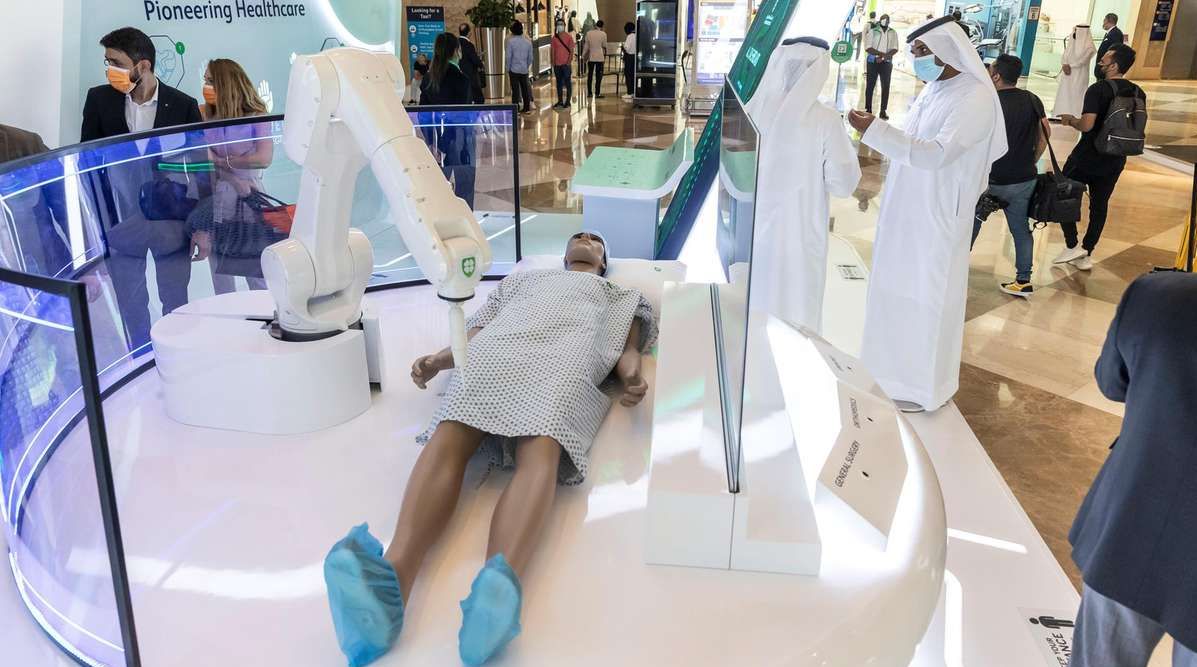Medical experts have noted that a booster vaccine shot provides higher protection against COVID-19 for those individuals who have received two doses of the Sinopharm vaccine.
During the Arab Health trade exhibition in Dubai, Dr Gehad ElGhazali, lead immunologist at the government-run Sheikh Khalifa Medical City in Abu Dhabi, underlined that the body's immune system achieves a "very strong" response against COVID-19 after the two doses of the Sinopharm vaccine are topped up with a booster shot of the Pfizer-BioNTech vaccine.
In Abu Dhabi, the Department of Health is already offering a third dose of the Sinopharm vaccine to those individuals who received the second dose six months ago.
Addressing the event, Dr ElGhazali stated that the body's immunity starts to reduce six months after taking a second dose of the Sinopharm vaccine, adding that a booster has proven safe and effective in recent tests.
“We have seen a very strong immune response when a third booster of Pfizer was administered following two doses of Sinopharm,” he said.
He explained that when there is natural infection from Coronavirus, there is an immune response after about three weeks, adding that a second vaccine dose provides a similar immune response.
More research is underway in a number of countries to determine the effectiveness of mixing vaccines in providing increased protection against new variants of COVID-19 that are emerging across the world.
A recent study in Germany focused on individuals taking one dose of the Oxford-AstraZeneca vaccine, followed by a Pfizer-BioNTech vaccine dose after eight weeks. Blood samples from the study showed that protection among people who received two different vaccines increased four times than in those who received two doses of the Pfizer-BioNTech vaccine.
In this regard, medical experts are exploring the potential of mixing vaccines in providing more options to health authorities to protect vulnerable individuals. Dr ElGhazali added that scientists have been assessing the difference in the immune response to the virus from the early stage of research.
“Patients with defective T cells or some kind of anaemia have shown worse response to the virus," he noted.
T cells facilitate the production of antibodies in the body to fight those cells infected by the virus. As per reports, COVID-19 infections can cause lymphopenia, a disorder that damages T cells and other white blood cells, among severely ill patients.
In a positive development, a number of studies have shown that a majority of people infected with COVID-19 develop a strong T-cell response. It helps in achieving potential long-term immunity against the virus, but more studies are underway to understand the developments related to the novel Coronavirus.
Prof Basel Al Ramadi, chairman of medical microbiology at UAE University in Al Ain, pointed out that taking cognisance of the virus' nature, there will be a Sars-CoV 3 and 4.
"We just hope it will not pose an existential threat to humans. We only have a few vaccines now, but there are more than 280 under development," Prof Al Ramadi added.
While most of these vaccines are injectable, there are a few that can be taken orally. The vaccines are developed with the aim of generating memory T cells to control the infection in the body.
A Phase 3 trial studying about 1,000 patients in the UAE who received the Sputnik V vaccine is underway to understand the presence of antibodies and T cells at least four months after taking the vaccine.
Prof Al Ramadi also underlined that asymptomatic or mild cases of COVID-19 generated a stronger T-cell response among patients, compared to those with moderate or severe infections. In addition, a lack of T cells was also observed among the elderly who were infected with COVID-19.
“Although we see antibodies in those who have had the virus, we still do not know for how long they may last,” Prof Al Ramadi added.
 AR
AR UR
UR
